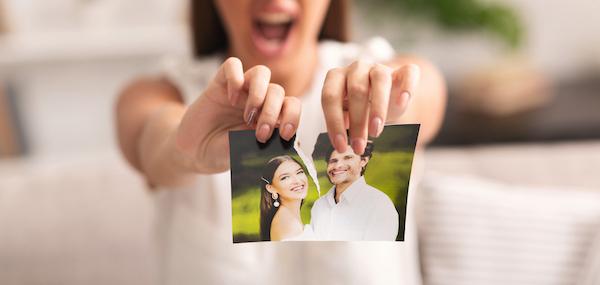Women Who Wish Their Spouses Would Die
By Dr. Margaret PaulOctober 26, 2009
Do you secretly hope your spouse will die? Do you feel awful for feeling this way? You are not alone! Discover the way out of the trap you are in.
 "I feel awful saying this," Mary told me during one of our facililtation sessions, "but I often wish my husband would die. I feel like a terrible person saying this, but I think about it a lot."
"I feel awful saying this," Mary told me during one of our facililtation sessions, "but I often wish my husband would die. I feel like a terrible person saying this, but I think about it a lot."
"I hear this fairly often," I responded. "You are thinking this, not because you are a terrible person, but because you feel trapped and you don't know how to get out of the trap."
"But my husband is a really nice person and he loves me. Yet all I want to do is get away."
Mary consulted with me because she was deeply depressed. Through our work together, it became apparent that Mary had completely lost herself in her marriage. While her husband was a "nice" person, he was also a very needy person who took no responsibility for his own feelings and needs. Mary felt constantly pulled on to fill him up and make him feel okay about himself. She was exhausted and drained.
Angie, another one of my clients, also fantasized about her husband dying. Angie's husband was not nice like Mary's husband. Instead he was an angry, blaming man who often attacked Angie for not doing what he wanted her to do. Angie was emotionally battered and bruised from the constant verbal abuse, and not only fantasized about her husband dying, but often had suicidal thoughts.
Why didn't these women leave rather than wish their husbands would die or think about killing themselves?
Sometimes women don't leave because of money, and sometimes because of children, but this was not the case with either of Mary or Angie. Mary and Angie wouldn't leave because they felt completely responsible for their husband's feelings. They knew that even if they left, they would still feel responsible. In their minds the only way out for them was for them to kill themselves or for their husbands to die.
Fortunately, there is another way out of feeling so trapped. The way out is to let go of responsibility for others' feelings and start to take responsibility for their own feelings. However, for many people, this is a huge challenge.
Both Mary and Angie had been deeply programmed as children to be caretakers. Their sense of worth was completely tied into being "selfless", which they equated with being loving. In their minds, taking care of themselves instead of caretaking others was selfish - and therefore wrong. The thought of taking care of themselves rather than caretaking their husbands left them feeling unbearably guilty. This is what was causing them to feel so trapped.
Freeing Themselves Through Learning to Love Themselves
Through their Inner Bonding work with me, Mary and Angie discovered that caretaking is a form of control - that rather than loving their husbands, they were giving themselves up to get approval or avoid anger or disapproval. They were shocked to realize that they, like their husbands, were also making their husbands responsible for their feelings.
Through practice, they gradually learned to take responsibility for their own feelings and let go of responsibility for their husband's feelings. They learned to take time for themselves, speak up for themselves, and trust their own feelings. In the course of learning to love themselves, they found that they could express love to their husbands without taking responsibility for their husband's feelings. The more they let go of responsibility for their husband's feelings, the freer they felt to love themselves and love their husbands.
Without their wives constantly taking responsibility for them, both their husbands gradually learned to take more responsibility for themselves.
Both Mary and Angie are still married to their same husbands and they no longer feel trapped, drained, or depressed - and they no longer want their husbands to die!
Heal your relationships with Dr. Margaret’s 30-Day online video relationship course: Wildly, Deeply, Joyously in Love.
 Send this article to a friend
Send this article to a friend  Print this article
Print this article  Bookmarked 3 time(s)
Bookmarked 3 time(s)
| Related Articles |
|---|
| Relationships: Empathy vs. Responsibility for Feelings |
| Relationships: Be Willing To Have People be Upset With You |
| Giving Yourself Up Can Kill You |
Comments
| Author | Comment | Date |
|---|---|---|
| Join the Inner Bonding Community to add your comment to articles and see the comments of others... | ||

Daily Inspiration
What can we control? We can control how we treat ourselves and others. We can control our own intent to be loving or unloving, open or closed, learning or protected, surrendered or controlling. What can't we control? We can't control others' feelings, behavior and the outcome of things. Today, notice what you do have control over and what you only have influence only, and how you feel when you try to control that which you can't control.
By Dr. Margaret Paul

 Share with Del.icio.us
Share with Del.icio.us Share with Digg
Share with Digg






